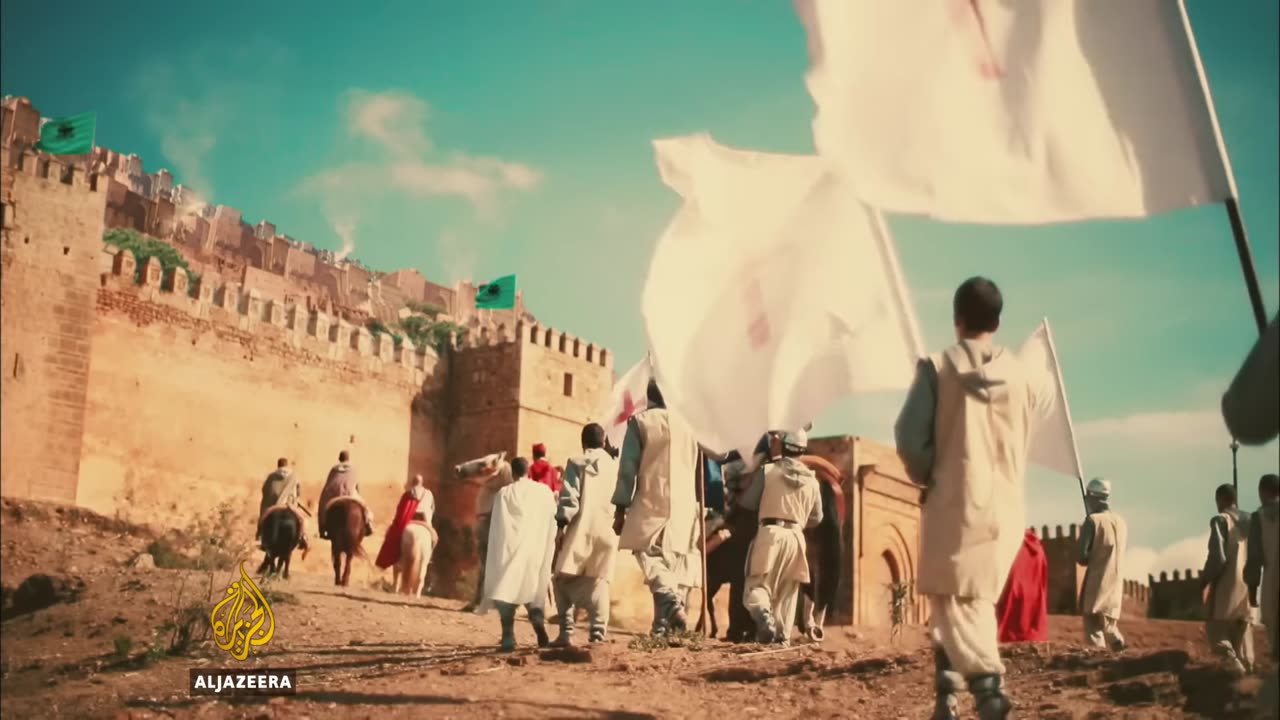Premium Only Content

The First Crusade and the Conquest of Jerusalem | An Arab Perspective - Episode One
Dec 7, 2016
The Crusades: an Arab Perspective - Shock: The First Crusade and the Conquest of Jerusalem (Episode 1)
The Crusades: An Arab Perspective is a four-part documentary series telling the dramatic story of the Crusades seen through Arab eyes, from the seizing of Jerusalem under Pope Urban II in 1099, to its recapture by Salah ad-Din (also known as Saladin), Richard the Lionheart's efforts to regain the city, and the end of the holy wars in 1291. In part one, we explore the history of the First Crusade and the conquest of Jerusalem.
The Crusades are the epitome of "holy war". Yet the roots of this 200-year conflict lay not just in religion, but also in the economic condition of medieval Europe.
"Around the time of the Crusades, Europe experienced several droughts which made people lose faith in everything," says Antoine Domit, history professor at the Lebanese University.
A struggle between church and state was taking place in Europe: Who would rule over the people of Europe, the pope or the king?
After centuries of European domination, largely through the armies of imperial Rome, the Mediterranean basin had fallen firmly under Muslim control. So the Muslims surrounded Europe, from Spain in the west to the eastern Mediterranean in the east.
"For Europeans, the east is 'A Thousand and One Nights'. It represents wealth, beautiful clothing, young concubines, thriving public life, songs and culture," says Elias al-Kattar, history professor at the Lebanese University.
While the Muslim east lived in prosperity, Europe had slipped into relative poverty and conflict.
"Medieval western society was a feudal society, which meant that you had the aristocracy in charge of a large amount of people that had no land possessions," says Jan Vandeburie, of the School of History, University of Kent.
Ishaaq Abaid, history professor at Ain Shams University, explains that "only one percent of people who had the titles of 'count', 'duke' or 'baron', owned all the agricultural lands. Ninety-nine percent of the European population were called serfs and worked on these lands."
Most Europeans in the 11th century lived in poverty and were struggling to survive, while war and conflict among knights were part of everyday life.
- Subscribe to our channel: http://aje.io/AJSubscribe
- Follow us on Twitter:
/ ajenglish
- Find us on Facebook:
/ aljazeera
- Check our website: http://www.aljazeera.com/
-
 LIVE
LIVE
Lofi Girl
2 years agoSynthwave Radio 🌌 - beats to chill/game to
346 watching -
 41:26
41:26
The Mel K Show
4 hours agoMel K & Clay Clark | Financial Success Hides Behind Self Discipline: Five Pillars | 8-24-25
15.3K2 -
 LIVE
LIVE
The Rabble Wrangler
11 hours agoThe Best in the West Plays Battlefield 2042 | Road to BF6 Grind
39 watching -
 LIVE
LIVE
JTtheSG
59 minutes agoBack To The Deadzone!!!
61 watching -
 LIVE
LIVE
The Official Steve Harvey
12 days ago $5.07 earned24 HOURS OF MOTIVATION w/ STEVE HARVEY
394 watching -
 25:56
25:56
DeVory Darkins
21 hours ago $0.66 earnedTrump drops ULTIMATE BOMB on Democrat Mayors as ICE makes SHOCKING Announcement
40.6K169 -
 3:36:30
3:36:30
TonYGaMinG
6 hours ago🟢 ABI WITH FRIENDS | 🍩JOE DONUTS | 😶 🌫 VLADSGAMINGCARTEL |
21.3K4 -
 21:24
21:24
marcushouse
12 hours ago $0.10 earnedStarship Flight 10: Go or No? 🚀
29.8K12 -

MrR4ger
17 hours agoSUNDAY FUNDAY w/ R4GER - VARIETY / DIABLO 4/ FOR HONOR / ETC?
24.7K -
 5:40
5:40
WhaddoYouMeme
3 days ago $0.28 earnedThey’re Calling This the End of Masculinity
35.8K34